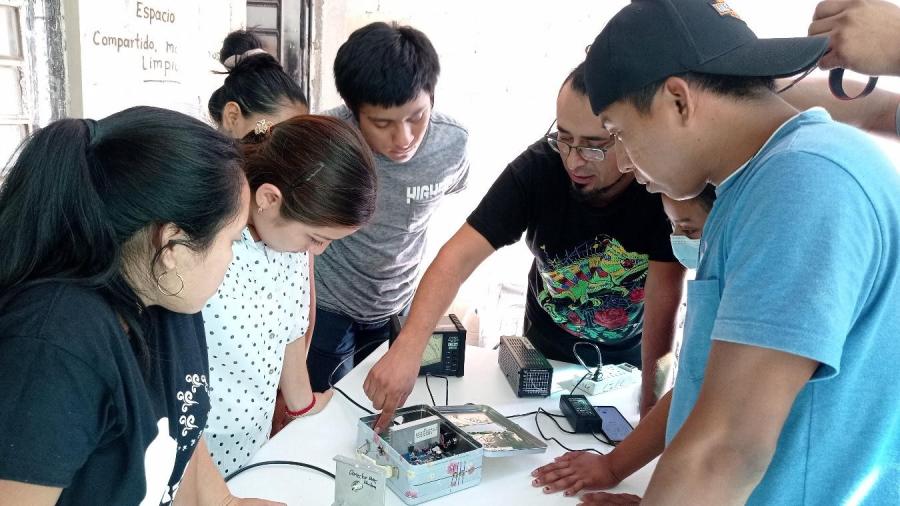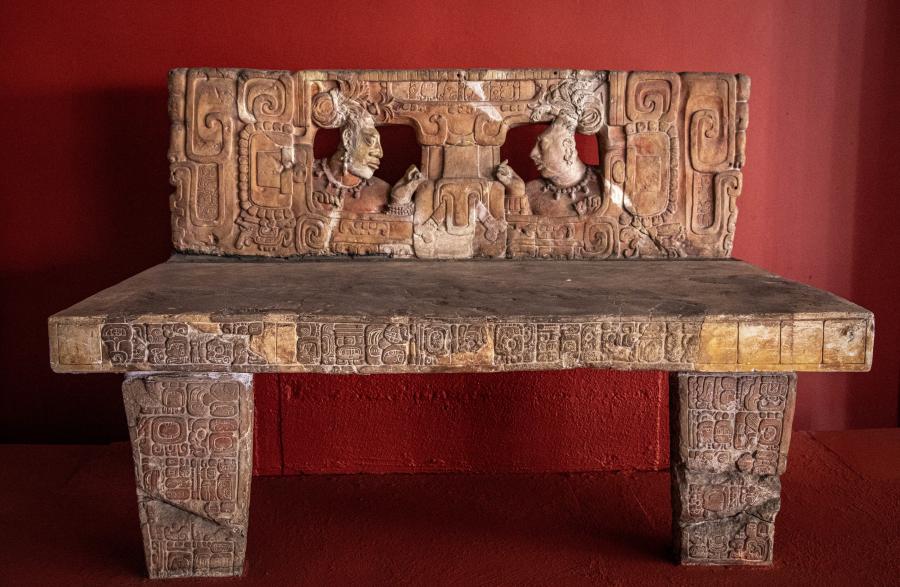By Avexnim Cojtí
En Español
Eighty-one kilometers from Guatemala City, in the community of Patzún, you will find Radio Sinakan, a Mayan community radio station started by community leaders who wanted to give local people a previously unavailable medium to express their voices, needs, and interests. Patzún is a municipality of mostly Maya Kaqchikel (95 percent) and is one of the few communities that has maintained the Kaqchikel language as a majority language. Although dominant, Kaqchikel is used by families only in private life and not in the public sphere. Public services such as education, health, and municipal services are still mostly given in Spanish and not in Kaqchikel.
Radio Sinakan, a grantee of Cultural Survival’s Community Media Grants Project, began 13 years ago, as part of Asociación de Desarrollo Integral Maya Kaqchikel (ADIMAK), to be the community voice in Kaqchikel and to counteract the strong wave of evangelical radio stations that had been operating in the region since the 1980s promoted by the Guatemalan evangelical military leadership. Guatemala’s leadership gave a platform to American evangelical churches during the toughest years of the country’s civil war and evangelical radio stations, while giving hope based on the Bible to the Maya population, also suppressed and continue to suppress awareness and promotion of ethnic and cultural heritage, Indigenous Peoples’ rights to land, territory, the public use of their language, as well as other important human and collective rights. The Mayan population has and continues to live in conditions of extreme poverty and oppression. While the churches are shelters of consolation for the daily problems that are experienced in the country, they do not cure the historical trauma and the social and political struggles of Indigenous communities.
Radio Sinakan is named after the last Indigenous leader of the Kaqchikel people and its objective is the revitalization of culture through language. When Cultural Survival made a site visit in 2017, they had only three volunteers at the radio station and they were part of the board of directors as well as the radio announcers. The radio tower had been handcrafted and presented several problems with its broadcast range. Community members complained that there was a weak radio signal and there were several communities where the signal did not reach at all. A year later, the station has a remodeled tower with a stronger signal which reaches more people in neighboring communities. The station also has more staff that have joined the board of directors as well as a body of community reporters who are contributing to and strengthening this communications platform for the various voices of Patzún.
Radio Sinakan has been strengthened to continue its community work for the Kaqchikel language and broadcasting of cultural content thanks to a grant from Cultural Survival's Community Media Grants Project. Part of this project includes training of seven women and ten men in radio journalism and radio production. They will develop specific skills such as voice-over techniques, audio editing techniques, and community reporting on social, environmental, and gender issues.
"Previously there were no radio spots, women's programs, or programs with social and environmental content. With the support of Cultural Survival and radio materials we have created, we made the Patzún community aware of the problems that Indigenous Peoples are currently facing at a global and local level. The radio materials are based on the lives of the Patzún community. We now broadcast spots on the care of water, the importance of trees, recycling of non-biodegradable materials, good nutrition for the prevention of disease, revitalization of our mother language, and hygiene. This project strengthened our expectations and our training as communicators for social change," said Carlos Chicol, project coordinator and vice-president of ADIMAK.


